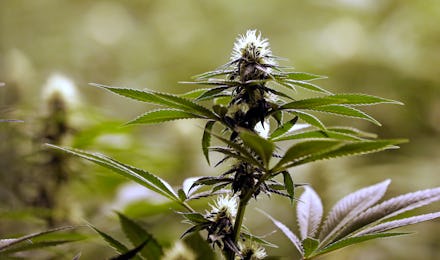Five Months After Decriminalizing Marijuana, Here's What's Happened in Philadelphia

In October, the city of Philadelphia decriminalized the possession of small amounts of marijuana for personal use. Just a few months later, the Philadelphia Police Department has announced that marijuana possession arrests across the city are down by an astonishing 88%, reports Philly.com.
That's right ... 88%.
Between October 20 and December 31, just 63 Philadelphians were arrested for possession compared to 559 over the final two months of the year in 2013.
The RAND Corporation, nonprofit global policy think tank, approximates that each possession arrest in the state of Vermont before legalization cost an astonishing $1,266. Assuming a similar cost, Goldstein estimates that Philadelphia has already saved $627,000 in just 60 days or about $3.75 million annually if the trend holds.
That's a lot of savings. But the benefits don't end there. Philadelphians rest easy in the knowledge that getting caught with a joint won't land them jail time or a criminal history. Since over 80% of people previously arrested for marijuana possession in the city were African-American, the dramatically lower arrest numbers are a victory for social justice as well. Hundreds if not thousands of Philadelphians will now get a $25 ticket instead of a potentially life-altering journey through the city's harsh justice system.
Not coincidentally, the new system is a lot fairer. Councilman Jim Kenney, who sponsored the decriminalization bill, explained to Philadelphia Mag that "As a white male, the odds of me being arrested for marijuana possession are virtually nil. If they want to arrest people for marijuana, why don't they walk through the parking lot of the ballpark before a game? There are plenty of white suburban people they could arrest. They could visit a frat party on a college campus and round up a bunch. But they don't."
More good news: Mayor Michael Nutter congratulated the city at the end of 2014 for the lowest violent crime rates since 1971, with a 36% reduction in homicide and 25% reduction in violent crime compared to 2007. (In far-off Colorado, where marijuana is now totally legal, crime rates fell for the first 11 months of the year.)
Reform isn't just popular, it's effective. Quinnipiac polling has shown 84% of Pennsylvanians back medical marijuana, while those in favor of legal recreational weed are nearly tied with opponents at 48% for and 49% against.
Instant savings, a fairer criminal justice system, little impact on violent crime and an electorate that increasingly seems open to reform? Marijuana decriminalization sure sounds like a good deal, doesn't it?